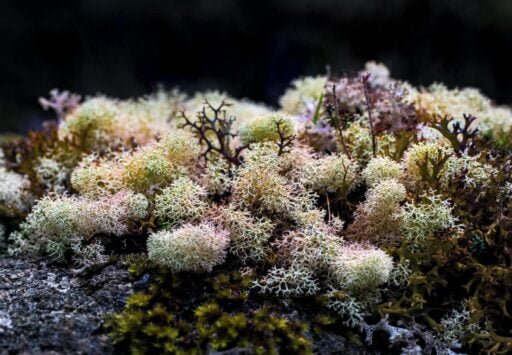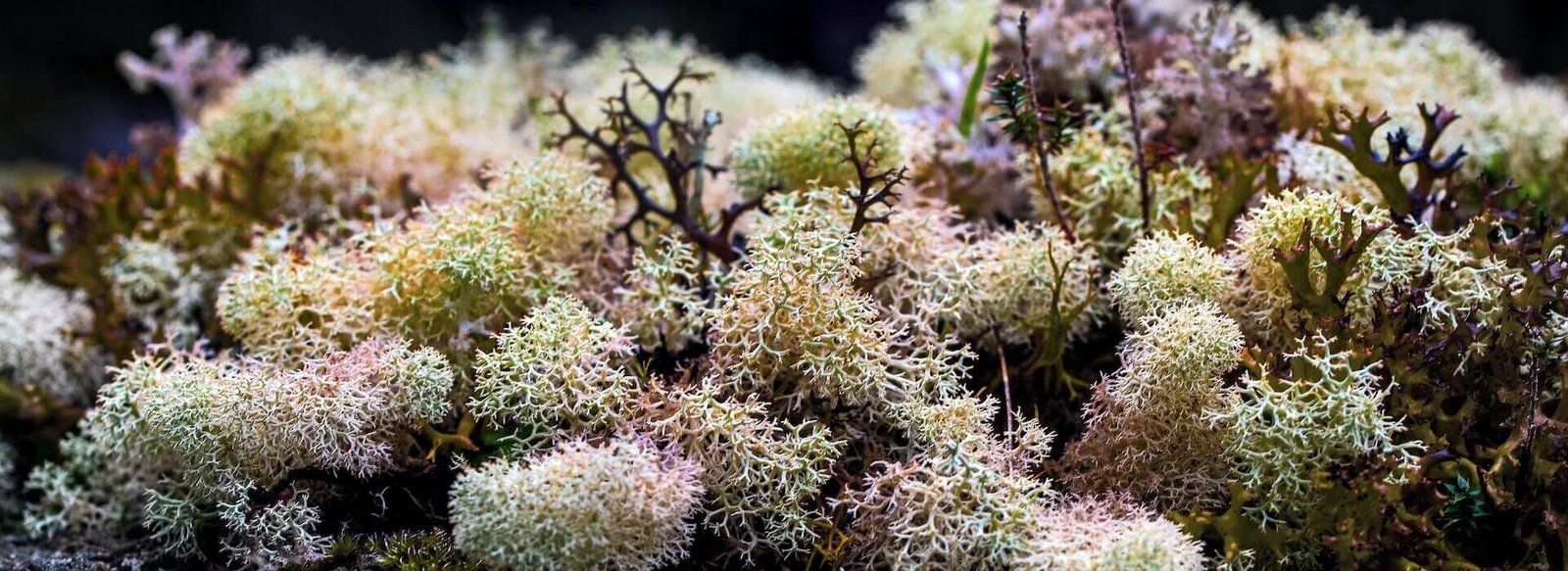If you’ve been searching for a natural remedy to combat anxiety, look no further than the intriguing sea moss. Known for its abundance of nutrients, sea moss has recently gained attention for its potential to help ease the symptoms of anxiety. But does it live up to the hype? In this article “Does Sea Moss Help With Anxiety”, we’ll explore the fascinating connection between sea moss and anxiety, shedding light on its potential benefits and providing you with the information you need to make an informed decision. So, sit back and discover the wonders of sea moss in your quest for a peaceful mind.
What is Sea Moss
Sea Moss, also known as Irish Moss or Carrageenan, is a type of seaweed that is found along the Atlantic coastlines of Europe, North America, and the Caribbean. It is a species of red algae that is harvested for its various health benefits and culinary uses. Sea Moss has been used for centuries in traditional medicine and is known for its potential to support overall health and well-being.
Definition of Sea Moss
Sea Moss refers to several species of seaweed that belong to the red algae family. It is a type of marine macroalgae that grows in intertidal zones and shallow coastal waters. Sea Moss has a gelatinous consistency and is commonly used as a thickening agent in food products. It is rich in vitamins, minerals, and other nutrients that can provide numerous health benefits.
Types of Sea Moss
There are several types of Sea Moss, each with unique characteristics and nutritional profiles. Some of the most commonly available types include:
- Chondrus Crispus: Also known as Irish Moss, Chondrus Crispus is a red algae species that is widely used in the culinary world for its gelling properties. It is often used as a vegan substitute for gelatin in various recipes.
- Gracilaria: Gracilaria is another type of red algae that is commonly used as a food source and for its potential health benefits. It is often found in Asian cuisine and is known for its high iron and fiber content.
- Eucheuma: Eucheuma, also known as Sea Bird’s Nest, is a type of red seaweed that is commonly used for its carrageenan content. Carrageenan, derived from Eucheuma, is widely used as a stabilizing and thickening agent in the food industry.
Understanding the different types of Sea Moss can help you choose the most suitable variety for your specific needs and preferences.
Understanding Anxiety
Anxiety is a natural response to stress or potential threat. It is a common human experience and can be characterized by feelings of fear, worry, or unease. While occasional anxiety is a normal part of life, excessive or prolonged anxiety can interfere with daily functioning and overall well-being.
Definition of Anxiety
Anxiety is a broad term that encompasses various mental health conditions characterized by excessive worry, fear, or apprehension. It is a natural response to stress and can be considered a protective mechanism that prepares the body to respond to potential threats. However, when anxiety becomes overwhelming and persistent, it can interfere with a person’s ability to function and lead a fulfilling life.
Types of Anxiety Disorders
There are several types of anxiety disorders, each with unique symptoms and characteristics. Some of the most common anxiety disorders include:
- Generalized Anxiety Disorder (GAD): GAD is characterized by excessive worry and fear about everyday situations. People with GAD often experience chronic anxiety that is difficult to control.
- Panic Disorder: Panic disorder is characterized by sudden and recurrent panic attacks. Panic attacks are intense episodes of fear and anxiety that can be accompanied by physical symptoms such as rapid heartbeat, shortness of breath, and chest pain.
- Social Anxiety Disorder: Social anxiety disorder is characterized by an intense fear of social situations and a fear of being judged or embarrassed. People with social anxiety disorder often avoid social interactions, which can significantly impact their daily lives.
Symptoms of Anxiety
The symptoms of anxiety can vary depending on the type and severity of the disorder. Common symptoms of anxiety may include:
- Excessive worry or fear
- Restlessness or feeling on edge
- Difficulty concentrating
- Irritability
- Muscle tension or aches
- Sleep disturbances
- Panic attacks
It is important to seek professional help if you are experiencing persistent anxiety symptoms that interfere with your daily life.

Nutritional Composition of Sea Moss
Sea Moss is revered for its impressive nutritional composition, as it is packed with essential vitamins, minerals, and other nutrients that are beneficial for overall health and well-being. Incorporating Sea Moss into your diet can provide a wide range of nutrients that are important for various bodily functions.
Vitamins Found in Sea Moss
Sea Moss is a rich source of vitamins, including:
- Vitamin A: Sea Moss contains vitamin A, which is essential for maintaining healthy vision, supporting immune function, and promoting skin health.
- Vitamin C: Sea Moss is a good source of vitamin C, an antioxidant that helps protect the body against oxidative stress and supports immune function.
- Vitamin E: Sea Moss contains vitamin E, which acts as an antioxidant and helps protect cells from damage caused by free radicals.
- B-vitamins: Sea Moss is also a source of various B-vitamins, including thiamine (B1), riboflavin (B2), niacin (B3), and folate (B9). B-vitamins play a crucial role in energy metabolism and the production of red blood cells.
Minerals Found in Sea Moss
Sea Moss is renowned for its mineral content, as it is a rich source of various essential minerals, including:
- Iodine: Sea Moss is one of the best natural sources of iodine, a mineral that is essential for the production of thyroid hormones. Adequate iodine intake is important for maintaining proper thyroid function.
- Iron: Sea Moss contains iron, a mineral that is involved in the production of red blood cells and oxygen transport throughout the body. Iron is necessary for maintaining optimal energy levels.
- Magnesium: Sea Moss is a good source of magnesium, a mineral that is involved in over 300 biochemical reactions in the body. Magnesium is important for muscle function, nerve function, and maintaining a healthy heart rhythm.
- Zinc: Sea Moss contains zinc, a mineral that supports immune function, wound healing, and DNA synthesis. Zinc is also important for maintaining healthy skin and hair.
Other Nutrients in Sea Moss
Besides vitamins and minerals, Sea Moss also contains other beneficial nutrients, including:
- Fiber: Sea Moss is rich in dietary fiber, which can support digestive health, regulate bowel movements, and promote feelings of fullness.
- Omega-3 fatty acids: Sea Moss contains omega-3 fatty acids, which are essential fats that play a crucial role in brain function and heart health.
- Antioxidants: Sea Moss is a natural source of antioxidants, which can help protect the body against oxidative stress and reduce the risk of chronic diseases.
Incorporating Sea Moss into your diet can provide your body with a wide range of essential nutrients that can support overall health and well-being.
Effects of Sea Moss on the Body
Sea Moss has been lauded for its potential health benefits and its effects on various bodily functions. Incorporating Sea Moss into your diet can have positive impacts on different aspects of your overall well-being.
Promotion of Digestive Health
Sea Moss contains a high concentration of dietary fiber, which can promote digestive health. Fiber helps regulate bowel movements, prevents constipation, and supports a healthy gut microbiome. By promoting regularity and improving digestion, Sea Moss can help optimize nutrient absorption and support the overall health of your digestive system.
Enhancement of Immune System
Sea Moss is rich in vitamins, minerals, and antioxidants that can support a healthy immune system. Vitamins A and C, found in Sea Moss, are known to play essential roles in immune function, while antioxidants help protect the body against free radicals and oxidative stress. By incorporating Sea Moss into your diet, you can provide your body with the necessary nutrients to strengthen and support your immune system.
Anti-Inflammatory Properties
Sea Moss has been studied for its potential anti-inflammatory properties. Chronic inflammation in the body can contribute to various health conditions, including cardiovascular disease, arthritis, and autoimmune disorders. Sea Moss contains bioactive compounds that may help reduce inflammation and promote overall well-being.
Balancing Hormones
Sea Moss has been traditionally used to help balance hormones, particularly in women. Hormonal imbalances can lead to various symptoms, such as irregular periods, mood swings, and decreased libido. Sea Moss contains nutrients, such as iodine, zinc, and magnesium, that are important for maintaining healthy hormone levels. By incorporating Sea Moss into your diet, you may help support hormone balance and alleviate associated symptoms.
By incorporating Sea Moss into your daily routine, you can potentially experience these positive effects on your body and overall well-being.

Connection between Sea Moss and Anxiety
Mental health and nutrition are closely interconnected. The food we consume can influence our brain chemistry, mood, and overall mental well-being. While there is no single food or supplement that can cure anxiety, certain nutrients and dietary choices can play a role in supporting mental health.
Role of Nutrition in Mental Health
Nutrition plays a vital role in supporting mental health and well-being. Research has shown that deficiencies in certain nutrients, such as omega-3 fatty acids, B-vitamins, and minerals, can contribute to the development or worsening of mental health conditions, including anxiety disorders.
Nutrition also affects the production of neurotransmitters, such as serotonin and dopamine, which are involved in regulating mood and emotions. Consuming a balanced diet that includes a variety of nutrients can help support optimal neurotransmitter function and promote mental well-being.
Possible Benefits of Sea Moss on Anxiety
Given the nutritional composition of Sea Moss and its potential effects on various bodily functions, it is reasonable to explore whether Sea Moss may have beneficial effects on anxiety. However, it is important to note that scientific research on the direct effects of Sea Moss on anxiety disorders is still limited, and more studies are needed to establish any causative or therapeutic connections.
Does Sea Moss Help With Anxiety: Studies and Research on Sea Moss and Anxiety
While limited research specifically focuses on the effects of Sea Moss on anxiety, some studies have explored the potential benefits of seaweed extracts on mental health. For example, a study published in the Journal of Medicinal Food found that a combination of red seaweed extracts, including Carrageenan derived from Sea Moss, exhibited anxiolytic (anti-anxiety) effects in mice.
Furthermore, the potential link between Sea Moss and anxiety may be related to its high mineral content, particularly iodine. Adequate iodine levels are important for optimal thyroid function, and thyroid imbalances have been associated with anxiety disorders.
Though there is preliminary evidence suggesting potential benefits of Sea Moss on anxiety, further research is necessary to fully establish its effectiveness and understand the mechanisms at play.
Evidence for Sea Moss as an Anxiety Aid
While scientific research on the direct effects of Sea Moss on anxiety is limited, there is anecdotal evidence and traditional practices that support the potential benefits of Sea Moss as an anxiety aid.
Anecdotal Evidence
Many individuals have reported positive experiences with using Sea Moss to manage their anxiety symptoms. Anecdotal evidence suggests that incorporating Sea Moss into the diet may contribute to a general sense of well-being and a reduction in anxiety symptoms. However, it is important to note that anecdotal evidence should be interpreted with caution and does not substitute scientific research.
Personal Testimonies
Personal testimonies from individuals who have included Sea Moss in their daily routine often highlight a reduction in anxiety symptoms and an overall improvement in mental health. These testimonies suggest that Sea Moss may have a calming effect and promote a sense of tranquility and emotional balance.
Cultural Practices
The use of Sea Moss as a traditional remedy for various ailments, including anxiety, is deeply rooted in certain cultures. For centuries, Sea Moss has been used in traditional medicine and herbal practices to support overall health and well-being. Cultural practices often provide valuable insights into the potential benefits of natural remedies, including Sea Moss, although they should not be considered conclusive evidence.
While there is no scientific consensus on the direct effects of Sea Moss on anxiety, the wealth of anecdotal evidence and cultural practices that support its potential benefits cannot be ignored. However, it is always important to approach complementary remedies with an open mind and consult with medical professionals to ensure safe and effective usage.

How to Incorporate Sea Moss into Diet
Sea Moss can be incorporated into your diet in various ways, depending on your preferences and culinary skills. Here are a few suggestions on how to make the most of Sea Moss:
Raw Sea Moss vs. Sea Moss Products
You can purchase Sea Moss in its raw form or opt for Sea Moss products, such as powders, capsules, or infused products. Raw Sea Moss can be soaked and blended to create a gel-like substance that can be added to smoothies, sauces, desserts, or used as a thickening agent. Sea Moss products provide a convenient option for incorporating Sea Moss into your diet without the need for preparation.
Recipes and Meal Ideas
Here are a few ideas on how to incorporate Sea Moss into your daily meals:
- Smoothies: Add a spoonful of soaked Sea Moss gel to your favorite smoothie recipe for an extra nutrient boost.
- Desserts: Use Sea Moss gel as a natural thickener in desserts like puddings, mousse, or cheesecakes.
- Soups and stews: Add Sea Moss gel to soups or stews to enhance their nutritional value and provide a creamy texture.
- Beverages: Prepare a Sea Moss-infused drink by boiling raw Sea Moss with herbs, fruits, or spices for a refreshing and nutritious beverage.
Feel free to experiment and explore different recipes to find the most enjoyable way to incorporate Sea Moss into your diet. Remember to start with small amounts and gradually increase your intake as you see fit.
Potential Side Effects and Precautions
While Sea Moss is generally considered safe for consumption, there are some potential side effects and precautions to be aware of.
Common Side Effects
Some individuals may experience common side effects when consuming Sea Moss, including:
- Gastrointestinal discomfort, such as bloating or gas.
- Allergies or sensitivities to seaweed or iodine.
- Changes in bowel movements.
If you experience any adverse reactions, it is recommended to discontinue use and consult with a healthcare professional.
Allergic Reactions
Although rare, some individuals may be allergic to Sea Moss or develop an allergic reaction to seaweed. Symptoms of an allergic reaction may include itching, hives, swelling, or difficulty breathing. If you suspect an allergic reaction, seek medical attention immediately.
Interactions with Medications
Sea Moss may interact with certain medications, including blood thinners and anticoagulants, due to its potential blood-thinning properties. If you are taking any medications, it is essential to consult with your healthcare provider before incorporating Sea Moss into your diet to ensure it is safe for you.
Consultation with Medical Professionals
Before making any significant changes to your diet or incorporating supplements like Sea Moss into your routine, it is crucial to consult with a healthcare professional, especially if you have pre-existing medical conditions or are taking medications.
Seeking Advice from a Healthcare Provider
A healthcare provider, such as a doctor, nutritionist, or naturopath, can provide personalized guidance and recommendations based on your specific health needs and considerations. They can help you determine if incorporating Sea Moss into your diet may have potential benefits for your anxiety symptoms.
Discussing Sea Moss Usage for Anxiety
During your consultation, discuss your anxiety symptoms, your interest in using Sea Moss, and any other relevant information. Your healthcare provider will be able to provide evidence-based advice, assess any potential contraindications or interactions with medications, and guide you on the best course of action.
Conclusion Does Sea Moss Help With Anxiety
While Sea Moss shows promise as a potential natural remedy for anxiety, it is important to approach it with a balanced perspective. The limited scientific research and reliance on anecdotal evidence and cultural practices suggest that Sea Moss may have beneficial effects on anxiety. However, further research is necessary to fully understand its mechanisms and establish its effectiveness.
When considering Sea Moss as a supplement to support anxiety management, it is crucial to consult with a healthcare professional. They can provide personalized guidance, ensure it is safe for you based on your medical history and current medications, and help you create a comprehensive wellness strategy.
Incorporating Sea Moss into your diet can provide a wide range of essential nutrients and may support overall health and well-being. Whether or not it directly aids in anxiety management, a balanced and nutrient-rich diet is an important foundation for maintaining optimal mental health.
Frequently Asked Questions:
1. What can help with anxiety? Various strategies, including mindfulness, exercise, therapy, and a balanced lifestyle, can contribute to anxiety management. Explore what works best for you.
2. What is the 3 3 3 rule for anxiety? The 3 3 3 rule involves acknowledging three things you see, hear, and feel during anxious moments, helping ground you in the present.
3. How do you deal with overwhelming anxiety? Managing overwhelming anxiety involves deep breathing, positive affirmations, and breaking tasks into smaller, more manageable steps.
4. Is sea moss good for nerves? While individual responses vary, some believe sea moss, rich in nutrients, may contribute to overall well-being, potentially benefiting nerve health.
5. How can I fix my anxiety naturally? Natural anxiety management includes lifestyle changes, relaxation techniques, and a balanced diet. Incorporating sea moss may be one part of a holistic approach.
6. How can I calm my anxiety naturally? Natural anxiety-calming methods include deep breathing, meditation, exercise, and maintaining a healthy diet. Individual responses differ, so explore what works for you.
7. Does anxiety ever go away? For some, anxiety may be a lifelong challenge, while others experience relief through various interventions. Seeking professional guidance can provide personalized insights.
8. What happens if anxiety is left untreated? Untreated anxiety can lead to worsening symptoms, affecting mental and physical well-being. Addressing anxiety with appropriate support is crucial.
9. What conditions are mistaken for anxiety? Conditions like thyroid disorders, heart conditions, or vitamin deficiencies may mimic anxiety symptoms. Consultation with healthcare professionals helps rule out underlying issues.
10. Why do I feel weird after sea moss? Individual responses to sea moss vary. Feeling unusual might be a personal reaction. If concerns persist, consult with a healthcare professional.
11. Who cannot take sea moss? Individuals allergic to sea moss, pregnant women, or those with specific medical conditions should consult healthcare providers before incorporating it into their diet.
12. How does Sea Moss make you feel? Some report increased energy and vitality with sea moss consumption, but individual experiences differ. Monitor your response and consult professionals if needed.
13. What is the fastest way to cure anxiety? There’s no instant cure for anxiety, but a combination of therapy, lifestyle changes, and, in some cases, medication can lead to effective management.
14. How I cured my anxiety with a vitamin? While certain vitamins may support mental health, individual responses vary. A holistic approach, including professional guidance, is often more effective.
15. Can anxiety go away without medication? For some, anxiety improves with therapy, lifestyle changes, and holistic approaches. Medication may be recommended in severe cases or when other methods are insufficient.
16. What are 5 signs you have anxiety? Common signs include excessive worry, restlessness, fatigue, muscle tension, and difficulty concentrating. Seeking professional evaluation is essential for accurate diagnosis.
17. Does anxiety get worse with age? While anxiety can affect individuals of all ages, it’s not a given that it worsens with age. Proper management strategies can help maintain mental well-being.
18. Are you born with anxiety or develop it? Both genetic and environmental factors contribute to anxiety. Some may have a predisposition, while others develop it due to life experiences. Professional assessment provides clarity.
19. Can Sea Moss cause anxiety? There’s no direct evidence linking sea moss to anxiety. Individual responses vary, and any concerns should be discussed with healthcare professionals.
20. What is the negative effect of sea moss? While sea moss is generally safe, excessive consumption may lead to adverse effects. Digestive discomfort or allergic reactions are possible; moderation is key.
21. Does Sea Moss make you sleepy? Sea moss contains nutrients that may support overall health, but it isn’t directly linked to sleepiness. Monitor your response and adjust consumption if needed.
22. Is sea moss getting banned? Certain countries have regulations on sea moss harvesting. Stay informed about sourcing and quality to ensure you are using a reliable product.
23. Is it safe to take sea moss every day? Moderation is crucial. While daily consumption is common, excessive intake may lead to adverse effects. Consult with healthcare professionals for personalized advice.
24. How much sea moss is safe per day? Dosage varies based on factors like health, individual needs, and the form of sea moss. Consultation with healthcare professionals ensures safe consumption.
25. Does sea moss calm you down? Individual responses to sea moss vary. While some report a calming effect, others may not experience the same. Monitor your response and seek guidance if needed.
26. How do I know if sea moss is working? Changes in energy, digestion, or overall well-being may indicate sea moss’s effectiveness. Regular monitoring and professional advice help assess its impact.
27. Should I take Sea Moss at night or in the morning? The timing of sea moss consumption depends on personal preferences and lifestyle. Experiment with different times to determine what works best for you.
Source1: Health Benefits
Source2: How to prepare
